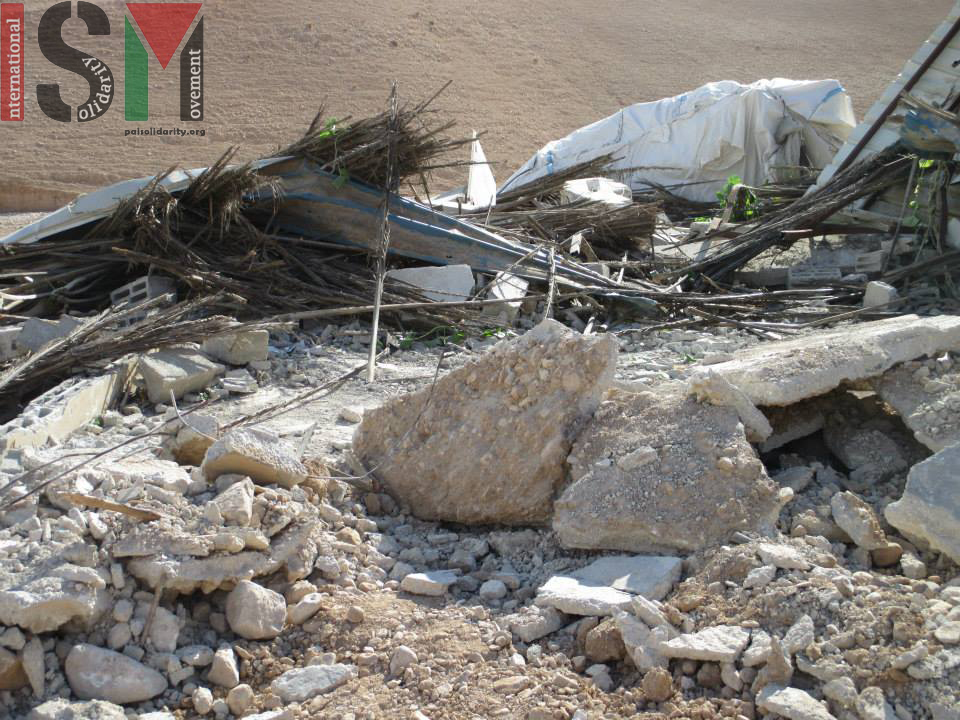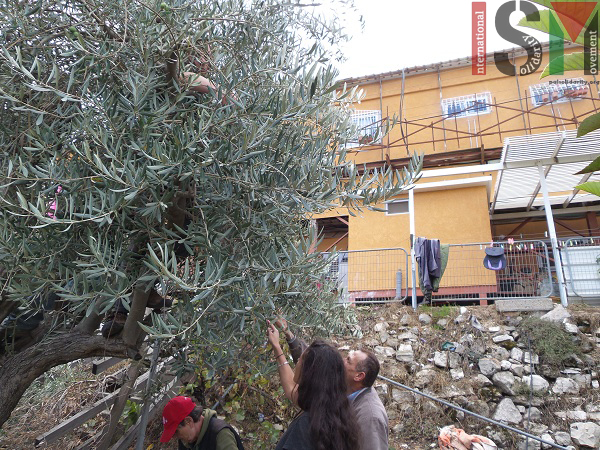Category: Reports
-
Family home and five other structures demolished by Israeli military
21st October 2014 | International Solidarity Movement, Nablus team | Jordan Valley, Occupied Palestine On October 20th, the Israeli military destroyed six structures belonging to a family in the village of al Jiftlik, in the Jordan Valley. At approximately 6:00 am, Israeli soldiers destroyed the family home of Mohammed Mousa Mohammed Abohernam, as well as five other buildings,…
-
Palestinian man successfully harvests olives for the first time in 14 years
20th October 2014 | International Solidarity Movement, Khalil team | Tel Rumeida, Occupied Palestine Today in al-Khalil (Hebron) Hashem Azzeh, a Palestinian man living in the Tel Rumeida neighborhood was able to successfully harvest his olives, on a certain part of his land, for the first time in 14 years. Hashem and his family live in…
-
Palestinians dismantle illegal settler outpost
12th October 2014 | International Solidarity Movement, Khalil team | Susiya, Occupied Palestine Today Palestinians and international activists participated in a Palestinian village community action which involved reaching an area of their land which has been declared a closed military zone. The action also consisted of dismantling a new illegal settlement outpost built by settlers. Over…



